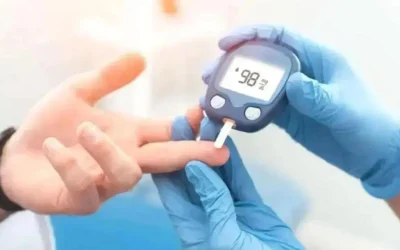Boy who couldn`t poop for 2 yrs finds relief, and other Mumbai medical miracles

Every other week, we hear of people suffering from terminal diseases and that can often be difficult for many beyond the families to deal with, as they know of someone close who may have also suffered similarly.
Even as they stories come to light, there are others that give us hope as they are nothing short of medical expertise and in many cases miracles for the families, who were dealing with tough times.
Here are some inspiring medical stories from the week:
Boy who couldn`t poop finds relief
A two-year-old child suffering from a congenital condition that made him unable to pass stool naturally since birth has been successfully treated at a Mumbai hospital recently. The child, who had been solely dependent on daily enemas for over two years due to Hirschsprung’s disease, is now leading a normal life after the procedure. He is free from abdominal pain and swelling, without any external stitches, and no longer needs further medical intervention.
The case came to light a few months ago when Mr and Mrs Vaidya (name changed), who were overjoyed with the birth of their first child, Aryan (name changed), but soon found out that he was facing difficulty passing stool. While he was a cheerful and playful baby, after he turned one month, they began noticing that he was struggling with severe constipation, which soon became a constant cause of concern. He was unable to pass stool for as long as 8 days.
Despite multiple medications and daily enemas given by their family doctor at Nashik, his condition never improved. His tummy often swelled with gas, and his weight gain remained poor. The family travelled from Nashik to Mumbai in December 2024 and consulted Dr Vibhor Borkar who suspected Hirschsprung’s disease. A few diagnostic tests like barium enema, endoscopy biopsy, and manometry confirmed the condition.
Dr Borkar, paediatric gastroenterologist at Gleneagles Hospital in Parel, said, “Hirschsprung’s disease occurs when nerve cells (ganglion cells) in the lower part of the large intestine fail to develop, causing stool to accumulate, causing blockage and leading to chronic constipation. Hirschsprung’s disease affects 1 in 5,000 to 10,000 children. There is no medical management for this condition, and it can even become life-threatening due to infections. In very young babies, delayed passage of the first green potty (meconium) can be an early sign. Older children usually suffer from swollen stomachs, vomiting, poor weight gain, and constant constipation while some may suffer from infections. Standard treatment requires major surgery that is either open or laparoscopic where the affected part of the intestine is removed and rejoined. However, in this child’s case, we used a minimally invasive technique called Per-rectal Endoscopic Myotomy (PREM), which avoids any external scarring. The child is free of symptoms, eating well, and passing stools without the requirement of enema. Not treating the child at the right time could have led to complications like enterocolitis, infection, and poor weight gain. Though this is a congenital condition, antenatal diagnosis is extremely difficult and the child becomes symptomatic after birth only.
Dr. Shankar Zanwar, who is interventional gastroenterologist on the case, added, “The child had a congenital condition called Hirschsprung’s disease, where the last part of the intestine lacks the necessary nerve cells, preventing stool from passing. As a result, the portion above it keeps enlarging, like a blocked pipe building pressure. When the child came from Nashik to us in Mumbai, he was extremely uncomfortable, his stomach was swollen, and he couldn’t pass stool without daily enemas. After confirming the diagnosis through manometry and biopsy, we treated the child using an advanced endoscopic technique known as Per-Rectal Endoscopic Myotomy (PREM).
Dr Zanwar added, “This procedure is done under general anesthesia where we were helped by Dr Aditya Prabhudesai and Dr Dhanashree Karkhanis. The whole procedure is done endoscopically where a small cut is made just inside the anus of the patient. From this cut a tunnel was made within the layers of the intestine and a nonfunctional segment of the intestine which lacks nerves was cut internally. The entry cut is then closed with clips. As the procedure is done endoscopically no scar or cut is seen on the body surface and the patient is pain-free after the procedure. The entire procedure lasted 3 hours. This procedure allowed us to manage the condition without traditional open surgery. Globally, only 13 such procedures have been reported, and this is the first case to be treated by the endoscopic method in Mumbai. Everything was done internally through an endoscope and there were no cuts or stitches outside. Within two days, the child was discharged and no longer needed enemas. His stomach has flattened, and he now passes stool normally. This procedure has truly changed his life.”
“My son Aryan was fine after birth. However, after a year, he started having constipation and was in pain. Our family doctor referred us to Dr Vibhor. His biopsy revealed Hirschsprung’s disease. After successful treatment, my son is fine now and is able to pass his bowels without any difficulty. We thank Dr Vibhor and Dr Shankar for their timely intervention,” said Mrs Vaidya.
Dutch woman treated with Cell-based therapy for Parkinson’s Disease in Navi Mumbai
A woman from Holland had been living with the painful symptoms of Parkinson’s Disease for years such as stiffness, tremors, slurred speech, and balance issues for 11 years before she was diagnosed two years ago. Now, she has been successfully treated at a Navi Mumbai hospital to lead a healthy life.
A team led by Dr Pradeep Mahajan, regenerative medicine researcher and founder of StemRx Hospital & Research Centre has successfully treated the woman with advanced cell-based therapy. Despite trying traditional treatments back home, her symptoms only grew stronger with time. Her health deteriorated as buttoning a shirt, pouring a glass of water, or simply standing up became daily challenges. She often found herself withdrawing from social gatherings, unable to keep up with conversations or the pace of others.
She came to India in 2023, and under the guidance of Dr Mahajan, was introduced to a holistic approach that aimed not just to mask her symptoms but to treat the root cause of her condition.
Dr Mahajan explained, “Parkinson’s affects people deeply physically, emotionally, and socially. Our approach through regenerative medicine focuses on reviving the dopamine-producing cells in the brain that have been damaged over time. We use a combination of stem cell therapy, neuro-rehabilitation, and physiotherapy to help patients regain control of their movement and improve overall brain function. The treatment uses stem cells to repair damaged brain tissue and growth factors to boost dopamine production, the chemical most impacted in Parkinson’s. This approach differs from conventional therapies, which offer only temporary symptom relief. Instead, regenerative medicine aims at long-term recovery and improved quality of life.”
Dr Mahajan added, “In Anne’s case, the results were transformative. After starting physiotherapy and cell therapy, her balance improved, her pain reduced, and even the persistent cramps she once endured began to fade. Her journey from fear and physical exhaustion to renewed strength and hope has become a beacon for other Parkinson’s patients seeking alternative therapies. Today, Anne is walking steadier, speaking clearer, and living with renewed confidence and proof that with the right care and innovation, even the toughest challenges can be met with courage and healing.”
Search
Recent
- Shubman Gill gives massive update on Kagiso Rabada
- Actor Shine Tom Chacko arrested by Kerala Police in drug case
- ‘Smiling meet between PM Modi, Yunus failed’: Congress on murder of Hindu leader
- Congress leader killed as BJP worker rams motorcycle in Chhattisgarh
- ‘I’ve put an end to all fights’: Uddhav’s alliance offer for Raj Thackeray




